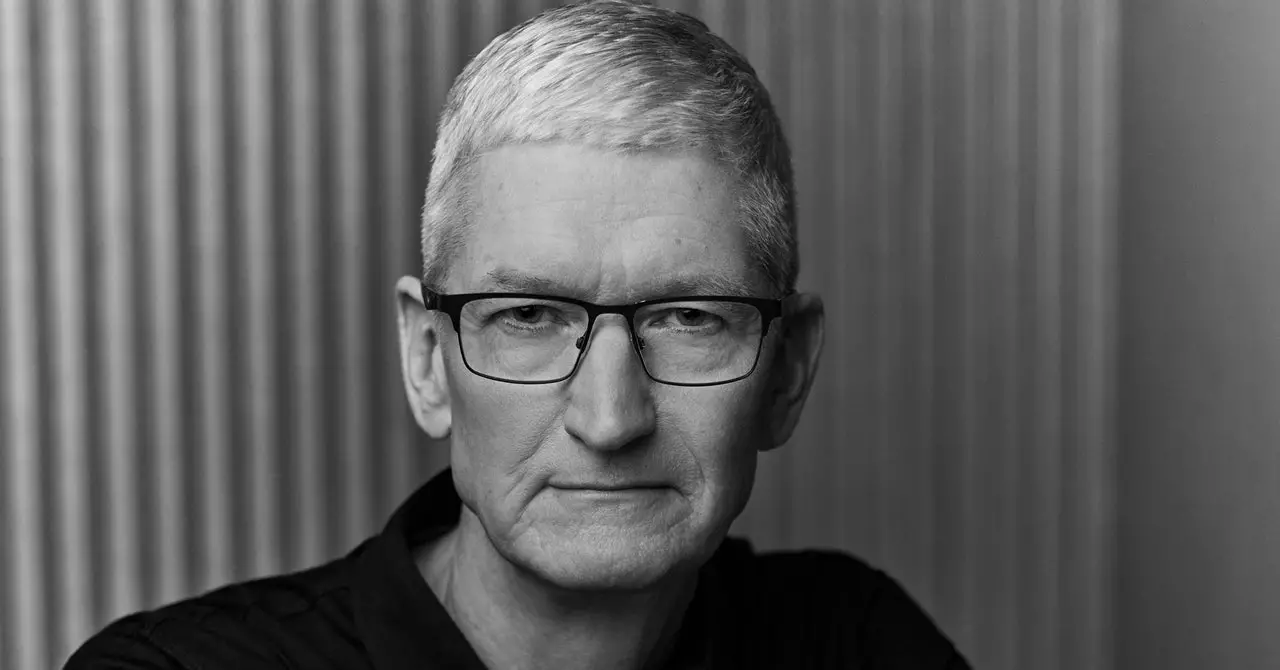Apple Park is no longer just a state-of-the-art campus; it stands as a monumental statement of ambition and innovation that echoes the company’s journey under the stewardship of Tim Cook. My recent return to the circular complex, seven years after its inauguration, took me back to a time when it was still a work in progress—a landscape filled with dirt and grit, now transformed into a vibrant ecosystem of productivity and creativity. As I walked through the grounds, memories of my first tour flooded my mind, and I was reminded of Cook’s declaration that creating Apple Park was a “100-year decision.” Now, however, Apple is faced with a different kind of challenge.
The technology sector is at a pivotal moment, one that could redefine the trajectories of its players. Companies that were once giants now find themselves besieged by fierce competition and rapidly evolving landscapes. Apple, despite its historical roots of innovation, seems to be at an unusually precarious point. The anticipation surrounding the upcoming launch of Apple Intelligence, its foray into the generative AI sector, reflects the anxiety of a company trying to reclaim its reputation as an industry innovator.
With competitors such as ChatGPT rapidly gaining popularity and media attention, Apple appears to be playing catch-up. This perception is compounded by their recent focus on high-profile products such as a high-end augmented reality headset, which seemed to overlook the burgeoning craze for AI. The stakes are enormous; if Apple can effectively integrate AI into its product line, it may secure its spot at the forefront of technological advancements in the coming years.
Tim Cook’s philosophy stands in stark contrast to a scramble for immediate accolades. Instead of rushing headlong into the generative AI race, he has opted to take a measured approach, much like his predecessor, Steve Jobs. Cook emphasizes the importance of not being first, but rather being the best—a cornerstone of Apple’s strategy that has led to transformative products in the past. When the iPod revolutionized music consumption, it did so not because it was the first device of its kind, but due to its unique blend of design, ease of use, and seamless integration with iTunes.
Cook believes that Apple has been laying the groundwork for this moment, dating back several years. His decision to recruit Google’s leading AI expert, John Giannandrea, demonstrated a commitment to assembling top-tier talent even before the generative AI wave began to swell. Furthermore, his strategic withdrawal from the secretive smart-car endeavor allowed the company to concentrate its resources on implementing AI across its myriad of software products, laying the foundation for an ecosystem ready to embrace the future.
In a world increasingly concerned with data privacy, Apple’s commitment to safeguarding user information sets it apart from competitors. As Apple rolls out its AI-driven features like emoji customization and an innovative image generator, Cook highlighted that these advanced processes will primarily operate locally on devices, reducing the need for data to be sent to external servers. The assurance that sensitive information remains safeguarded aligns well with Apple’s values and offers a significant competitive edge.
In a realm where data is often likened to the new oil—precious but susceptible to exploitation—Apple’s focus on user privacy not only cultivates trust but also reinforces its brand identity. Under Cook’s leadership, this strategy has created a clear delineation between Apple and other tech companies, setting a lofty standard that must be maintained and, ideally, emulated.
The Future:
A Balancing Act
As I settled into the conference room for a meeting with Cook, I was struck by his demeanor: calm yet charismatic. Unlike the fiery rhetoric often associated with Steve Jobs, Cook personifies a more measured approach to discourse. His ability to articulate Apple’s future while downplaying the pressure suggests a leader who understands the stakes at hand but remains unfazed by them.
The success of Apple Intelligence, much like previous offerings, will ultimately be determined by users, many of whom are demanding more than flashy features—they seek tangible benefits that genuinely improve their experiences. If Apple’s AI initiative falters, the fallout will be intense. Yet, true to form, Cook will likely embrace any setbacks and position future iterations as victories.
In an industry where the bar rises continuously, Apple stands at a crucial junction, one that requires not only technological prowess but a deep understanding of user sentiment and a commitment to ethical considerations. The coming months will be both a test and an opportunity for Cook to prove that Apple can still be a titan of innovation in this new age of artificial intelligence.


Leave a Reply